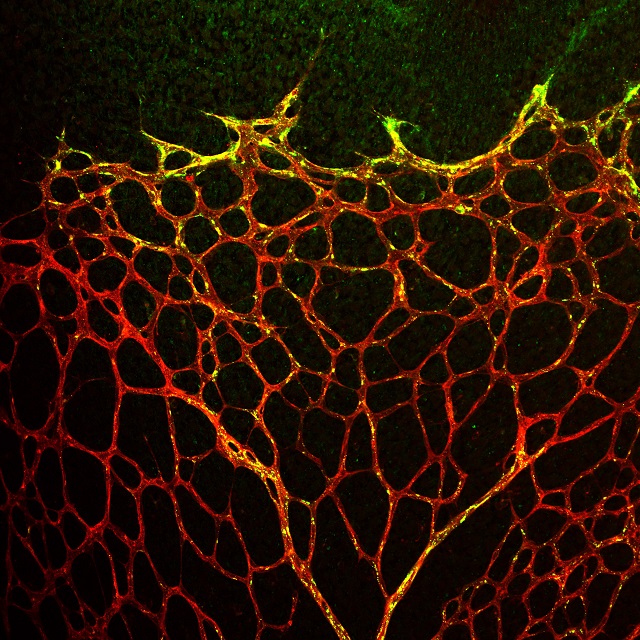

Researchers we fund have successfully grown smooth muscle cells in a dish from a small sample of blood and have shown that these behave in similar ways to those found in blood vessels, according to research published today in the Frontiers Cell and Developmental Biology journal.

Growing cells from blood vessels in the lab usually requires taking arteries or veins from someone during surgery or after death. Now, researchers from Imperial College London have shown that smooth muscle cells, grown from blood samples from healthy volunteers, contract in the same way as cells grown from blood vessels.
Researchers hope that this discovery could, one day, make it possible to grow complete blood vessels in the lab. Eventually, these blood vessels could be used as replacement blood vessels for people with heart and circulatory conditions.
Moving blood around the body
Smooth muscle cells, found in the walls of blood vessels, support the movement of blood around the body by contracting and relaxing in response to chemical signals. This vital function helps to direct blood to the areas of the body where it is needed most. Problems with how smooth muscle cells contract have a role in a range of heart and circulatory conditions, including high blood pressure and diabetes.
The Imperial team have previously shown that it’s possible to grow endothelial cells (which line the inside of blood vessels) and smooth muscle cells in a dish from blood samples from healthy volunteers and look at inflammation. In this study they compared the contraction of these smooth muscle cells with those grown from an existing blood vessel.
To do this the researchers exposed the smooth muscle cells to thromboxane, a hormone which is known cause these cells in the body to contract. Shortly after exposure they saw increased levels of calcium in the cells – a signal that the cells need in order to contract.
Lab-grown blood vessels are one step closer
Now, the team are focusing on growing smooth muscle cells from blood samples from people with heart and circulatory conditions. They have already started in patients with type 1 diabetes, who are at increased risk of heart and circulatory complications, and have successfully shown that these cells are also able to contract in response to thromboxane.
Dr Blerina Ahmetaj-Shala, Research Fellow at the BHF Centre of Research Excellence, Imperial College London, led the study. She said:
“So far we’ve been able to grow the individual cells that make up a blood vessel from blood samples. Next, we want to create 3D models of blood vessel systems using blood samples from both healthy volunteers and people with heart and circulatory conditions. This will allow us to compare how blood vessels function in health and disease, which will reveal more about the development of different conditions.”
find out how blood vessels are made


